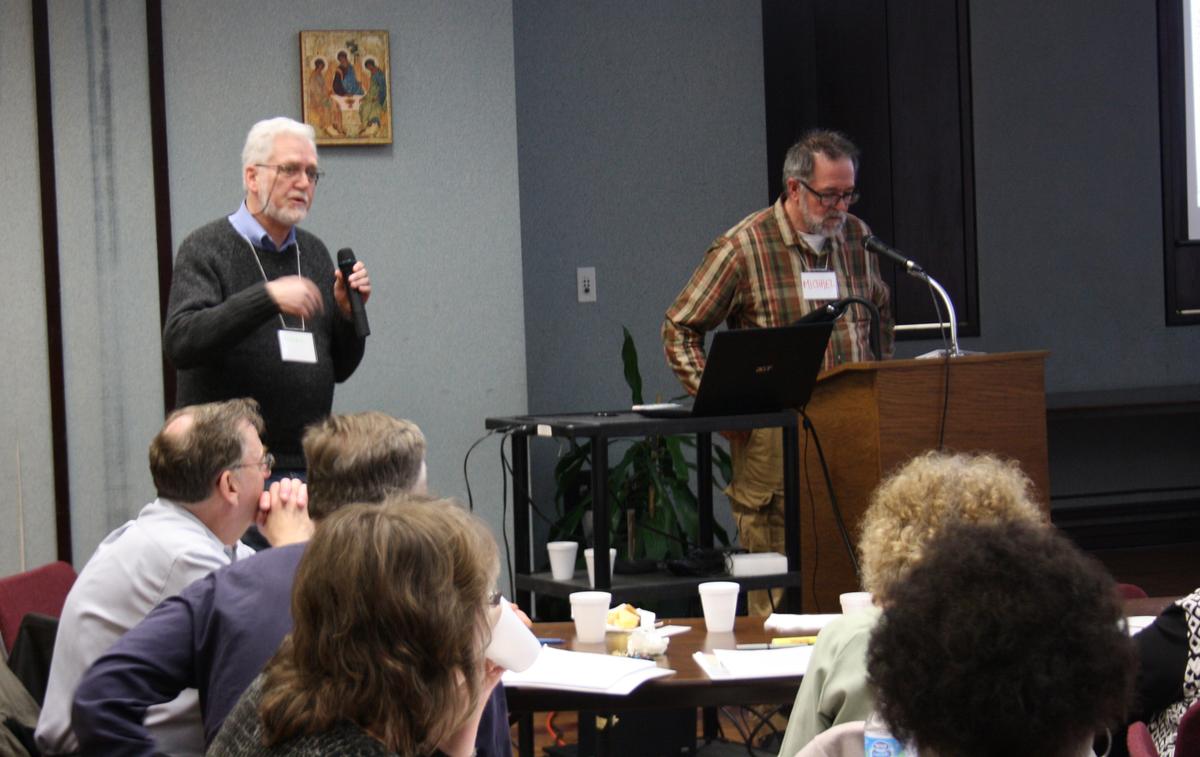Expanding its efforts to create a culture of lifelong learning, the Diocese of Montreal has embarked upon a new three-year continuing education program.
The program, which began Jan. 1, 2015 and runs until Dec. 31, 2017, asks clergy to complete 60 hours of continuing education over a three-year period, as required by Bishop Barry Clarke for each licensed clergyperson in the diocese.
Using a list of competencies for ordination prepared in 2013 by thePrimate’s Commission on Theological Education and Formation for Presbyteral Ministry, clergy members identify which competencies they want to work on, prepare supporting documentation and keep track of their self-registered courses in a log.
Sophie Bertrand, human resources coordinator for the Diocese of Montreal, said the program serves as a complement to the Anglican Church of Canada Continuing Education Plan (CEP), which remains the primary source of funding for clergy engaged in continuing education.
By committing to professional development, she noted, clergy have the opportunity to meet their peers, participate in leadership activities and get more involved in the life of the diocese.
“We think that it’s fundamental to have well-equipped clergy so we can build leadership,” Bertrand said.
To help develop strong leadership qualities, the diocese offers regular educational opportunities such as seminars and specialized training courses that allow clergy to build on their competencies.
In addition, Bishop Clarke conducts regular meetings with clergy to discuss their education needs and provide ongoing support.
On April 23, the diocese will hold its first clergy continuing education day, a free event for all clergy members that will take place at St. George’s Anglican Church in Montreal and respond to a particular educational need identified through meetings with the bishop.
The central topic of this year’s event is “self-care.” Discussions will focus on areas such as learning about oneself and working with different types of personalities. A presentation by speaker and workshop facilitator Tim Elliott will offer guidance on how clergy can take care of themselves while taking care of others.
“This is the first one, [so] we’ll see how it goes,” Bertrand said. “We are planning on doing more of those.”
Throughout the duration of the program, the diocese will continue getting feedback from clergy members and conducting random verifications.
At the end of the three-year period, the diocese will review the program and identify new opportunities corresponding to need.
Though the continuing education program is still in its early stages, response from clergy has been overwhelmingly positive.
“People are very enthusiastic…,” Bertrand said. “Most of our clergy have a real interest for building on their competencies. It’s just that they didn’t have the tools to do it and they didn’t realize how they could do it together, so it creates a chance for them to discuss…that.”
Encouraging professional development has beneficial effects on the ministry of the diocese and the church as a whole, she added.
“We try to equip [clergy] so they can develop the church [ministry] in order that they can stimulate and enable the diocese and the church to participate more fully in the mission.”
Interested in keeping up-to-date on news, opinion, events and resources from the Anglican Church of Canada? Sign up for our email alerts .

